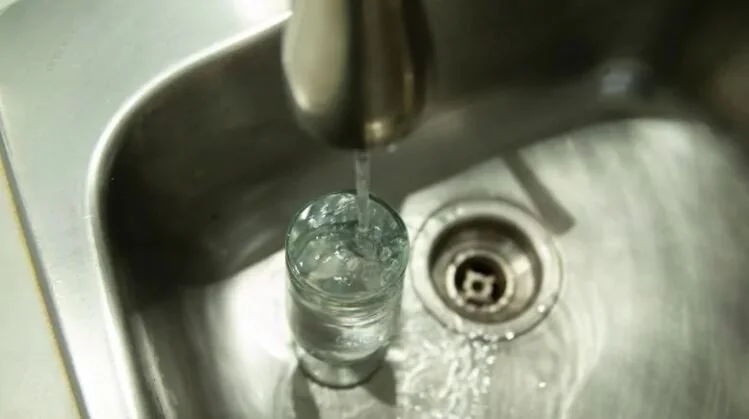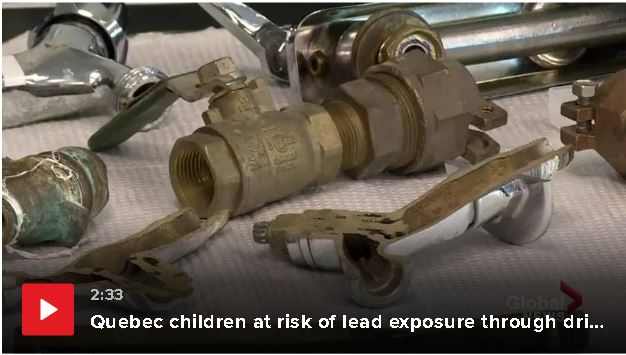More than a third of the City of Richmond’s pipes delivering drinking water to its residents are made of cement containing asbestos. The statistic came to light last week on CTV’s W5 investigation show, with Richmond having the ninth-highest percentage of asbestos cement pipes - compared to its entire network - among the 100 cities contacted nationwide.
Vaccine-derived polio virus detected in 2 Canadian wastewater samples
After initiating its own wastewater testing for polio last year, Canada has detected two samples of vaccine-derived polio virus type 2 (VDPV2). According to the World Health Organization (WHO) and Pan American Health Organization (PAHO)'s epidemiological update released on Dec. 30, 2022, the virus strain was found in two wastewater samples collected between Aug. 20 and Aug. 30 2022.
Statement by the Prime Minister on World Health Day
"Today, we celebrate World Health Day and the founding of the World Health Organization (WHO). This year's theme – 'Our planet, our health' – reminds us that our health and well-being is fundamentally connected to the health of our planet. The crises of climate change and rapid biodiversity loss are health crises too. "Taking real action to confront the climate crisis and protect our environment will deliver clean air and clean water for Canadians – as well as their associated health benefits – now and into the future.
Anti-fluoride group expected to bring back debate to Windsor-Essex
Dentists want to keep it in, but one group wants communities across Canada to keep fluoride out of the water we drink. A new group, Fluoride Free Canada, is expected to announce a new initiative to make sure fluoride is not added to drinking water in any Canadian community. Details of the announcement have been embargoed until late Wednesday morning, but it comes as the debate continues to take place in some Windsor-Essex communities on whether the anion should be added to the water.
A new report finds waterways near industrial farms in Canada could be a public health threat
Public waterways next to industrial farms in Manitoba contain antibiotic resistance genes (ARGs) that are dangerous to public health says a report from the global charity World Animal Protection. The report is the first multi-country investigation of its kind titled, 'Silent superbug killers in a river near you' and along with Canada, included testing in Spain, the US and Thailand.
Rural Alaskans struggle to access and afford water
Water scarcity in rural Alaska is not a new problem, but the situation is getting worse with climate change. Lasting solutions must encourage the use of alternative water supplies like rainwater catchment and grey water recycling. They must also address the affordability of water related to household income, say researchers from McGill University. Washing hands with clean water is something most people take for granted, yet for Alaska's rural residents, this is often not the case. When people pay for water by the gallon, serious thought is given to how much is used – even during the COVID-19 pandemic.
Ready to vote again on water fluoridation? Calgary to hold 7th plebiscite on issue
Calgary will hold yet another plebiscite on whether to restore fluoride to the city's drinking water this fall. Council voted 10-4 in favour of allowing the electors to decide the issue on Monday. It will be put to the public during the 2021 municipal election in October. Council chose to stop adding fluoride to its water supply in 2011, against the opinion of Calgarians who had voted in favour of fluoridation in 1998 and 1989 plebiscites. The city has held plebiscites on the issue dating back to the 1950s.
Fredericton company supplying COVID-19 test chemicals detects virus at home office
LuminUltra Technologies Ltd., the Fredericton-based company assisting in the production of millions of COVID-19 tests, detected coronavirus at its headquarters in the city's downtown last week. Using an environmental test developed in house, LuminUltra staff detected "a trace amount of SARS-CoV-2 on a surface in a common area" on July 16, communications director Jessica Stutt said in an emailed statement to CBC. "We immediately informed the Department of Health and have been following their guidance; all employees that have been in the area have been advised to self-isolate," Stutt said in the Friday email. "At this time no employees are symptomatic of COVID-19."
Is it safe to swim in a pool during the COVID-19 pandemic?
As temperatures across Canada continue to rise, few things do a better job of keeping us cool than going for a swim. But with the closure of public swimming pools across the country due to the COVID-19 pandemic, many may be left wondering how safe it will be to return to these spaces once they reopen. According to Matthew Miller, a biochemistry professor at McMaster University in Hamilton who is studying the novel coronavirus, COVID-19 is highly unlikely to be transmitted through water.
Testing suggests 1 in 5 Winnipeg homes with lead pipes have unsafe levels of lead in drinking water
One in five Winnipeg homeowners with lead pipes will get unacceptable levels of lead in their drinking water the moment they turn on the tap, according to the City of Winnipeg. Under the city's lead water quality testing program, samples were taken from 268 homes with lead pipes between Aug. 15 and Nov. 19. The testing was done to ensure water quality met new national guidelines for lead in drinking water, which cut the acceptable amount of contamination in half last March. "Overall, the results are as expected," Renee Grosselle, manager of environmental standards with the City of Winnipeg, told reporters Tuesday afternoon.
Lead levels in Prince Rupert drinking water could point to B.C.-wide problems
Leona Peterson doesn’t drink the water from her tap anymore. The single mother says she was warned about lead in the water by a neighbour as soon as she moved into the subsidized Indigenous housing complex where she lives in Prince Rupert, a city of almost 12,000 people in northwestern B.C. “She said, ‘There is lead in our water,’” Peterson said. “‘Don’t doubt it, just start flushing.’”
Investigation reveals dangerous lead levels in some Quebec drinking water
Thousands of Quebecers could be getting misleading information about lead contamination in the water coming out of their taps because the province uses a sampling method that underestimates the true level of exposure, Global News has found through surveys and 84 tests of residential drinking water conducted in five cities across the province. The revelations are based on a collaborative investigation by a team of two dozen journalists from Concordia University’s Institute for Investigative Journalism, Global News and Le Devoir. The journalists fanned out across the province to knock on hundreds of doors, taking water samples for testing that revealed lead levels often higher than city workers had told residents.
Plastic particles in drinking water present 'low' risk - WHO
Microplastics contained in drinking water pose a “low” risk to human health at current levels, but more research is needed to reassure consumers, the World Health Organization (WHO) said on Thursday.
Studies over the past year on plastic particles detected in tap and bottled water have sparked public concerns but the limited data appears reassuring, the U.N. agency said its first report on potential health risks associated with ingestion.














